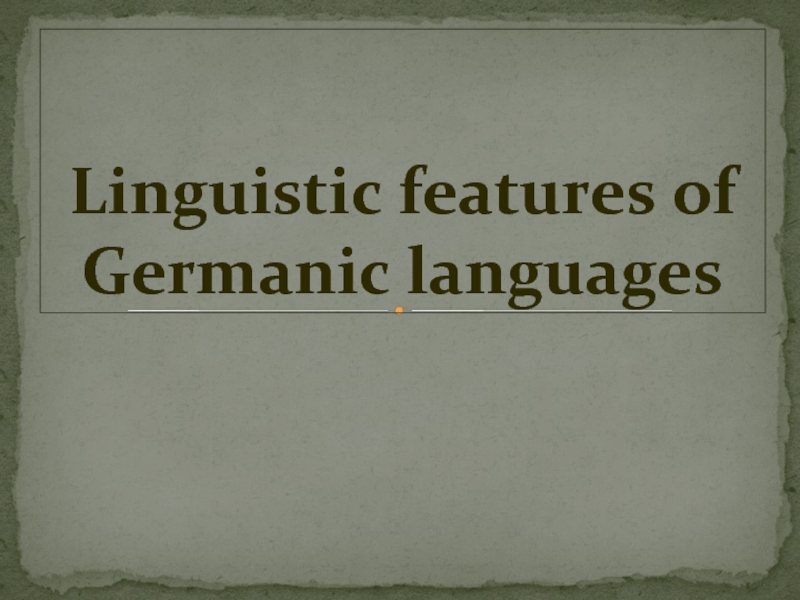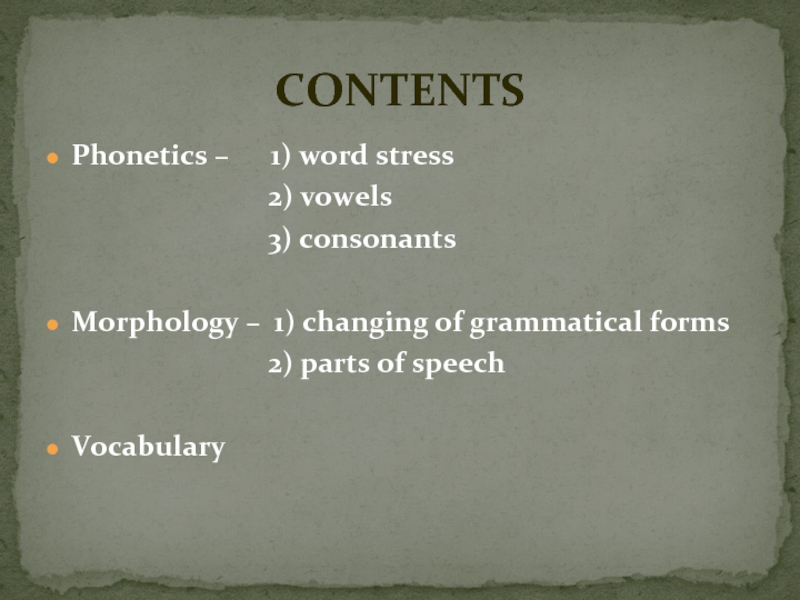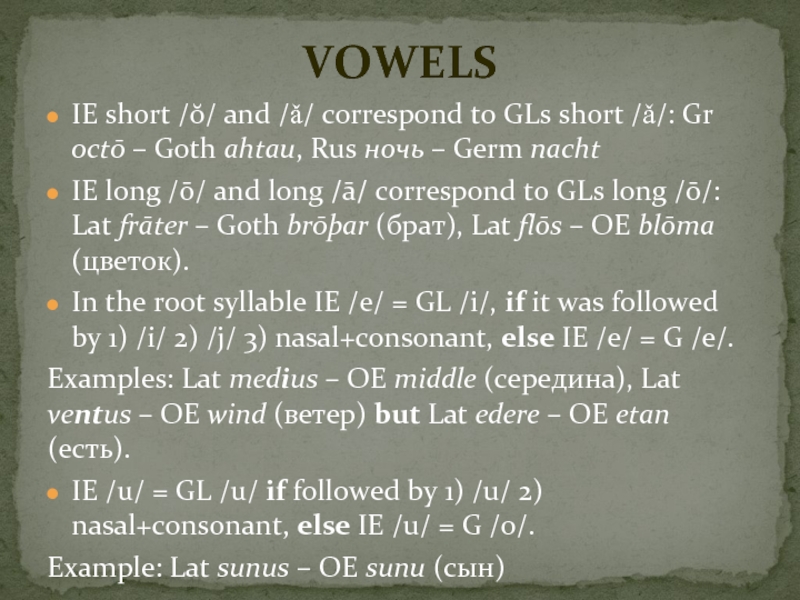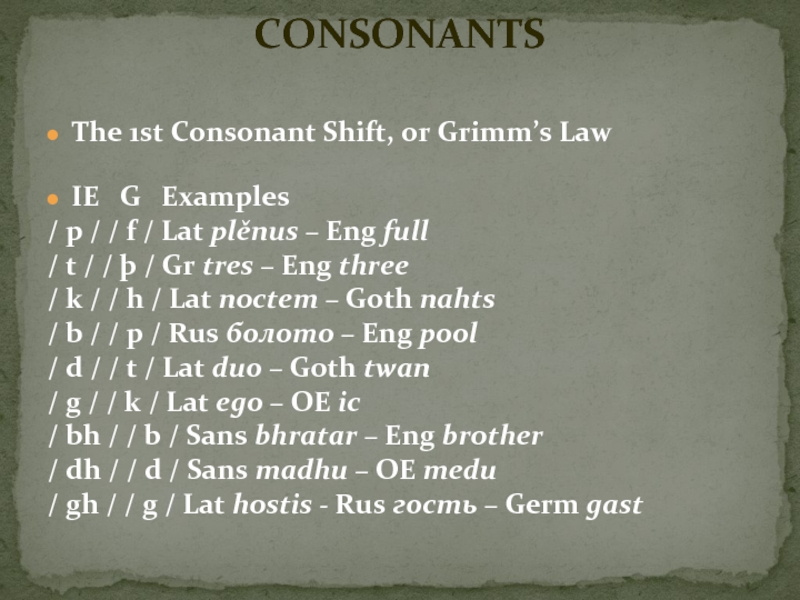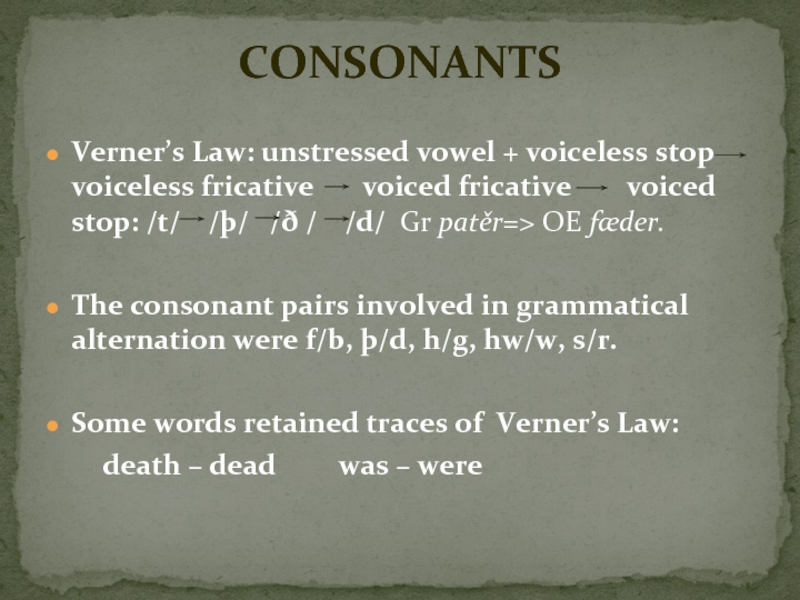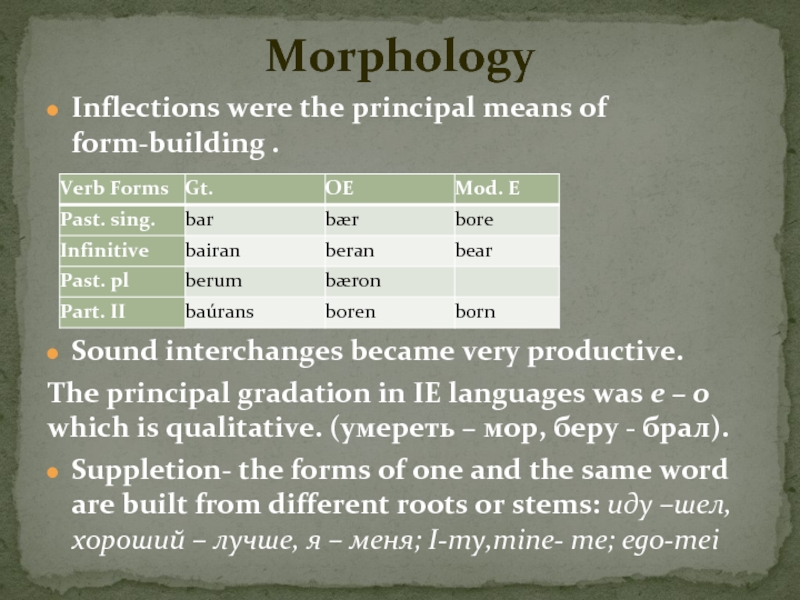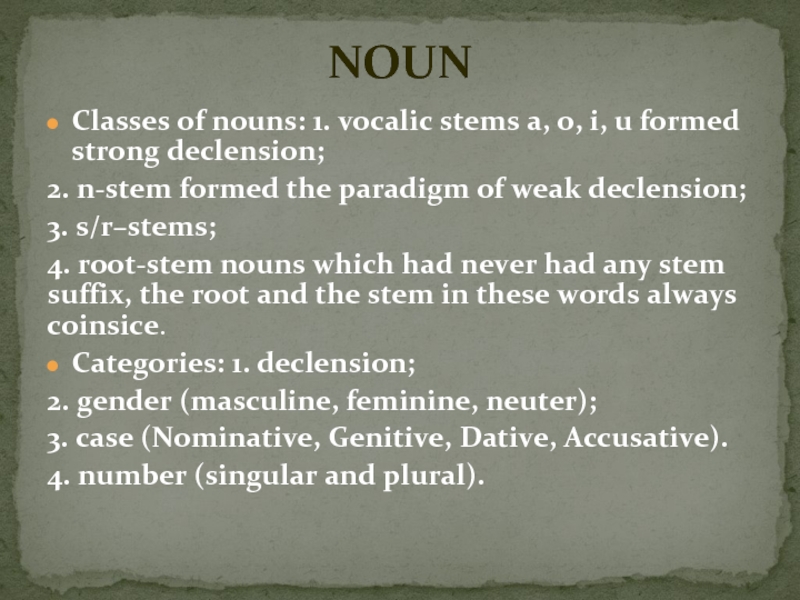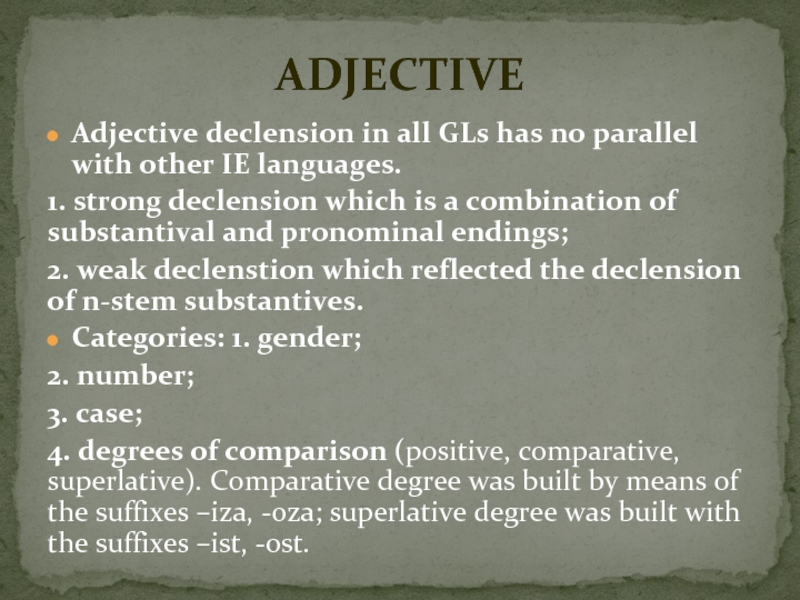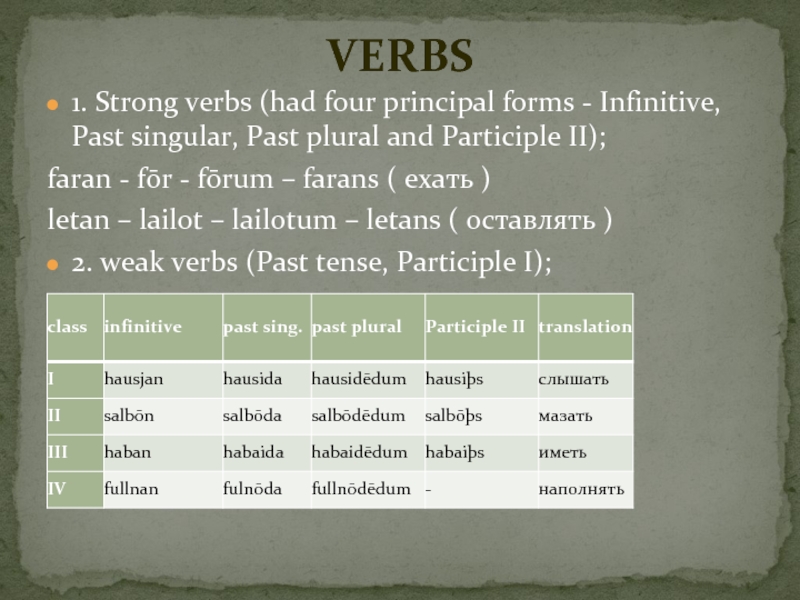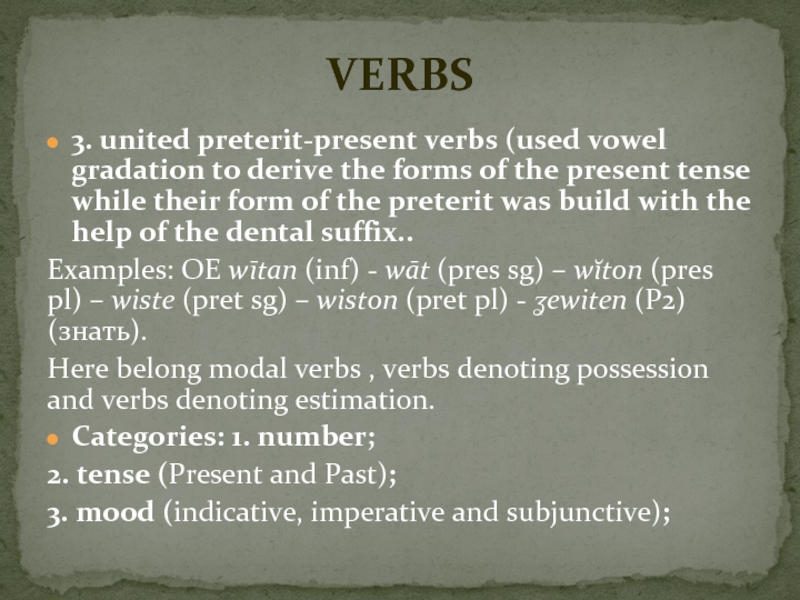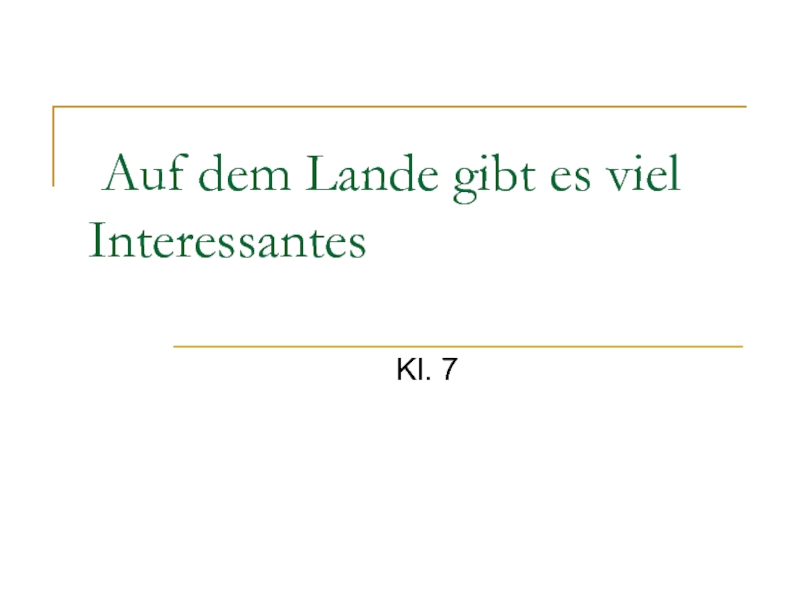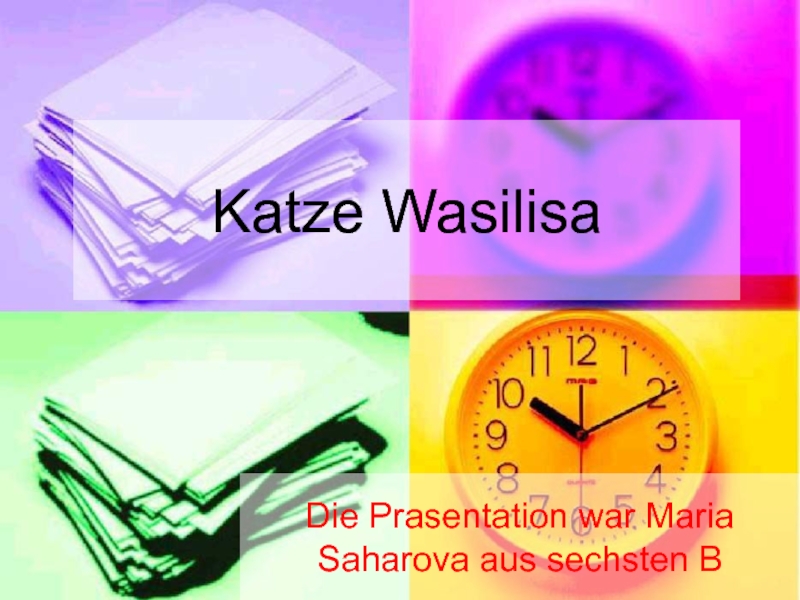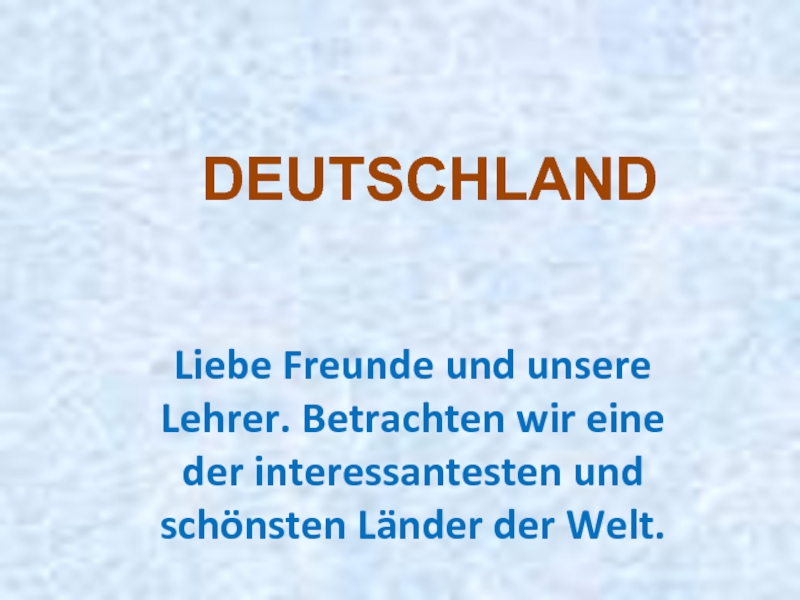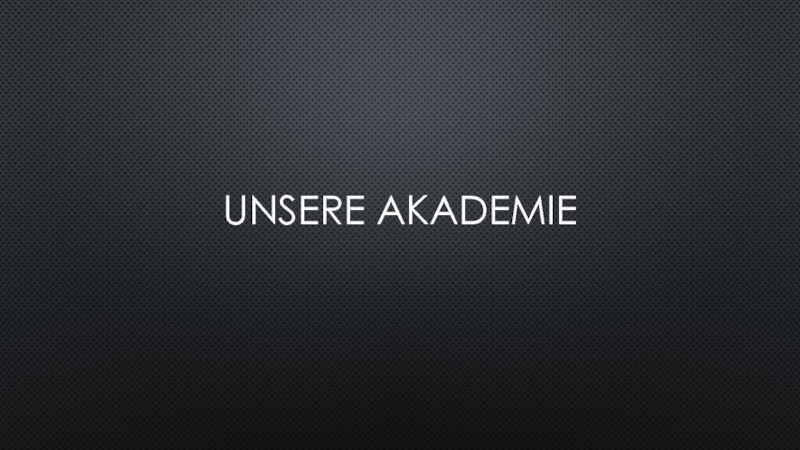- Главная
- Разное
- Дизайн
- Бизнес и предпринимательство
- Аналитика
- Образование
- Развлечения
- Красота и здоровье
- Финансы
- Государство
- Путешествия
- Спорт
- Недвижимость
- Армия
- Графика
- Культурология
- Еда и кулинария
- Лингвистика
- Английский язык
- Астрономия
- Алгебра
- Биология
- География
- Детские презентации
- Информатика
- История
- Литература
- Маркетинг
- Математика
- Медицина
- Менеджмент
- Музыка
- МХК
- Немецкий язык
- ОБЖ
- Обществознание
- Окружающий мир
- Педагогика
- Русский язык
- Технология
- Физика
- Философия
- Химия
- Шаблоны, картинки для презентаций
- Экология
- Экономика
- Юриспруденция
Linguistic features of Germanic languages презентация
Содержание
- 1. Linguistic features of Germanic languages
- 2. Phonetics – 1) word stress
- 3. Early Proto-Germanic – free and movable Late
- 4. IE short /ŏ/ and /ǎ/ correspond to
- 5. The 1st Consonant Shift, or Grimm’s Law
- 6. Verner’s Law: unstressed vowel + voiceless stop
- 7. Inflections were the principal means of form-building
- 8. Classes of nouns: 1. vocalic stems a,
- 9. Adjective declension in all GLs has no
- 10. The oldest classes are personal, demonstrative and
- 11. 1. Strong verbs (had four principal forms
- 12. 3. united preterit-present verbs (used vowel gradation
- 13. IE words Pure Germanic words VOCABULARY
- 14. Borrowed words VOCABULARY
Слайд 2Phonetics – 1) word stress
3) consonants
Morphology – 1) changing of grammatical forms
2) parts of speech
Vocabulary
CONTENTS
Слайд 3Early Proto-Germanic – free and movable
Late Proto-Germanic – fixed on the
In simple forms the root-syllable was normally stressed.
In compound forms (especially in nouns and adjectives) the stress fell on the prefix.
In verbs the prefix was still a separate particle at that time and did not take the stress.
PG fiskaz, Gt fisks, O Icel fiskr, OE fisk
WORD STRESS
Слайд 4IE short /ŏ/ and /ǎ/ correspond to GLs short /ǎ/: Gr
IE long /ō/ and long /ā/ correspond to GLs long /ō/: Lat frāter – Goth brōþar (брат), Lat flōs – OE blōma (цветок).
In the root syllable IE /e/ = GL /i/, if it was followed by 1) /i/ 2) /j/ 3) nasal+consonant, else IE /e/ = G /e/.
Examples: Lat medius – OE middle (середина), Lat ventus – OE wind (ветер) but Lat edere – OE etan (есть).
IE /u/ = GL /u/ if followed by 1) /u/ 2) nasal+consonant, else IE /u/ = G /o/.
Example: Lat sunus – OE sunu (сын)
VOWELS
Слайд 5The 1st Consonant Shift, or Grimm’s Law
IE G Examples
/
/ t / / þ / Gr tres – Eng three
/ k / / h / Lat noctem – Goth nahts
/ b / / p / Rus болото – Eng pool
/ d / / t / Lat duo – Goth twan
/ g / / k / Lat ego – OE ic
/ bh / / b / Sans bhratar – Eng brother
/ dh / / d / Sans madhu – OE medu
/ gh / / g / Lat hostis - Rus гость – Germ gast
CONSONANTS
Слайд 6Verner’s Law: unstressed vowel + voiceless stop voiceless fricative
The consonant pairs involved in grammatical alternation were f/b, þ/d, h/g, hw/w, s/r.
Some words retained traces of Verner’s Law:
death – dead was – were
CONSONANTS
Слайд 7Inflections were the principal means of form-building .
Sound interchanges became very
The principal gradation in IE languages was e – o which is qualitative. (умереть – мор, беру - брал).
Suppletion- the forms of one and the same word are built from different roots or stems: иду –шел, хороший – лучше, я – меня; I-my,mine- me; ego-mei
Morphology
Слайд 8Classes of nouns: 1. vocalic stems a, o, i, u formed
2. n-stem formed the paradigm of weak declension;
3. s/r–stems;
4. root-stem nouns which had never had any stem suffix, the root and the stem in these words always coinsice.
Categories: 1. declension;
2. gender (masculine, feminine, neuter);
3. case (Nominative, Genitive, Dative, Accusative).
4. number (singular and plural).
NOUN
Слайд 9Adjective declension in all GLs has no parallel with other IE
1. strong declension which is a combination of substantival and pronominal endings;
2. weak declenstion which reflected the declension of n-stem substantives.
Categories: 1. gender;
2. number;
3. case;
4. degrees of comparison (positive, comparative, superlative). Comparative degree was built by means of the suffixes –iza, -oza; superlative degree was built with the suffixes –ist, -ost.
ADJECTIVE
Слайд 10The oldest classes are personal, demonstrative and interrogative.
Personal pronoun had only
Another ancient feature was the dual number of personal pronouns (ic – wit – wē; þu – ʒit – ʒē ).
PRONOUNS
Слайд 111. Strong verbs (had four principal forms - Infinitive, Past singular,
faran - fōr - fōrum – farans ( ехать )
letan – lailot – lailotum – letans ( оставлять )
2. weak verbs (Past tense, Participle I);
VERBS
Слайд 123. united preterit-present verbs (used vowel gradation to derive the forms
Examples: OE wītan (inf) - wāt (pres sg) – wĭton (pres pl) – wiste (pret sg) – wiston (pret pl) - ʓewiten (P2) (знать).
Here belong modal verbs , verbs denoting possession and verbs denoting estimation.
Categories: 1. number;
2. tense (Present and Past);
3. mood (indicative, imperative and subjunctive);
VERBS
